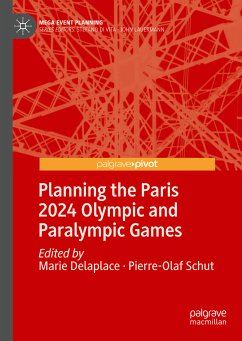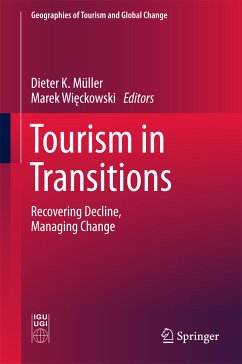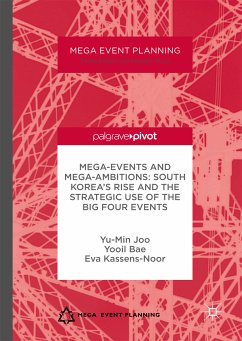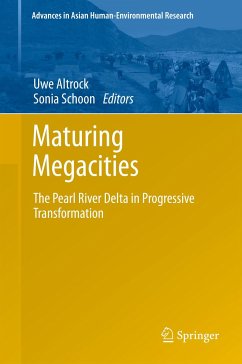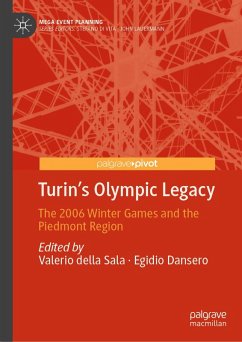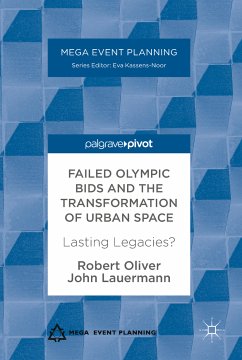
Failed Olympic Bids and the Transformation of Urban Space (eBook, PDF)
Lasting Legacies?

PAYBACK Punkte
26 °P sammeln!
This book evaluates why cities choose to bid for the Olympics, why Olympic bids fail, and whether cities can benefit from failed bids. Attention is shifted away from host cities (or winners), to consider the impact of the bidding process on urban development in losing cities. Oliver and Lauermann show that bidding is often a politically strategic exercise, as planning ideas are recycled from one bid project to the next. As Olympic bids become more deeply embedded in urban development and bid teams engage in legacy planning, Oliver and Lauermann demonstrate that bid failure is rarely definitive...
This book evaluates why cities choose to bid for the Olympics, why Olympic bids fail, and whether cities can benefit from failed bids. Attention is shifted away from host cities (or winners), to consider the impact of the bidding process on urban development in losing cities. Oliver and Lauermann show that bidding is often a politically strategic exercise, as planning ideas are recycled from one bid project to the next. As Olympic bids become more deeply embedded in urban development and bid teams engage in legacy planning, Oliver and Lauermann demonstrate that bid failure is rarely definitive and is often a desirable result. This volume adds a new and innovative perspective to Olympic Studies and mega-events more broadly, with appeal to a variety of other disciplines including geography, urban planning, spatial politics and sport and civic policy.
Dieser Download kann aus rechtlichen Gründen nur mit Rechnungsadresse in A, B, BG, CY, CZ, D, DK, EW, E, FIN, F, GR, HR, H, IRL, I, LT, L, LR, M, NL, PL, P, R, S, SLO, SK ausgeliefert werden.



